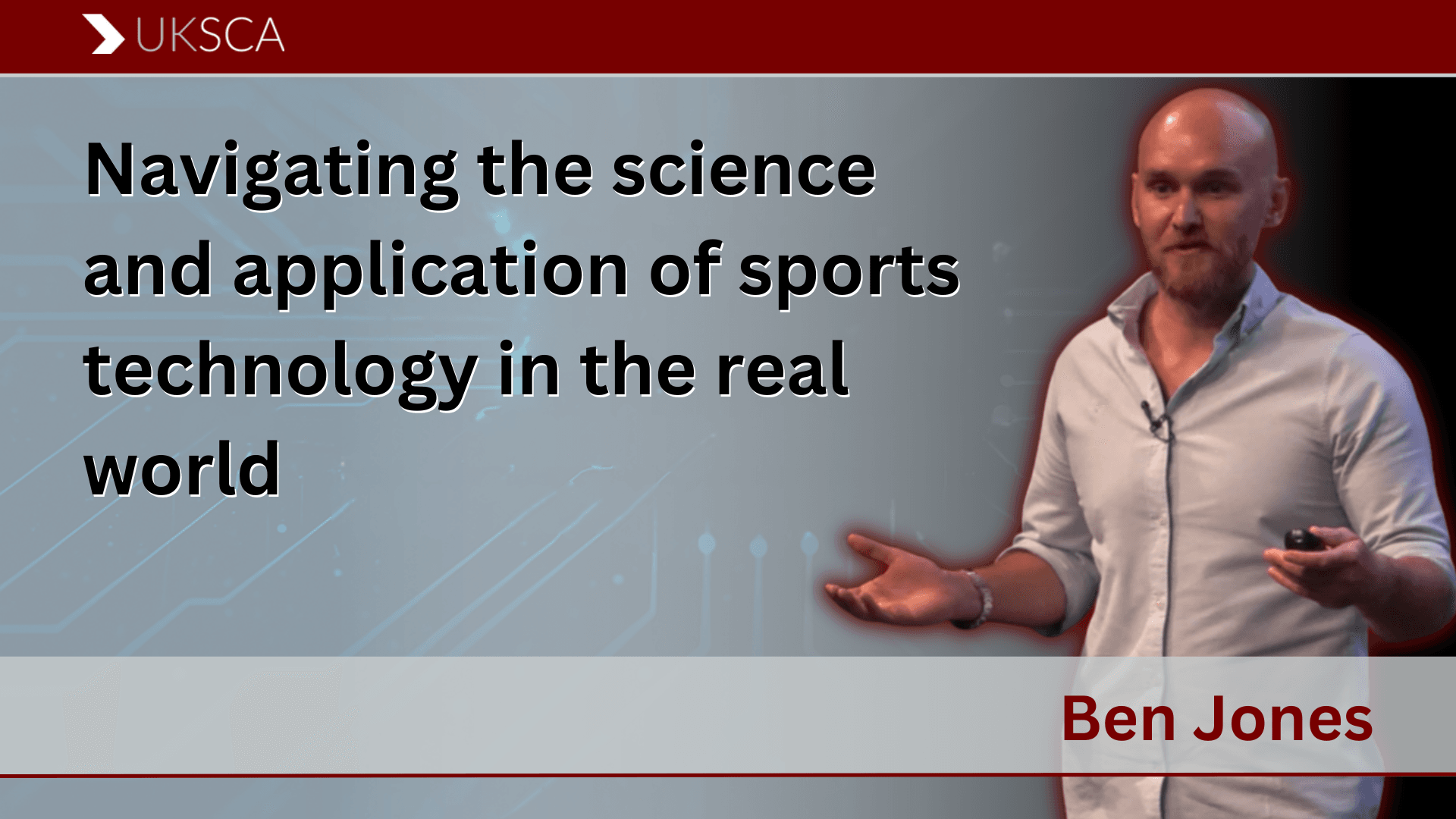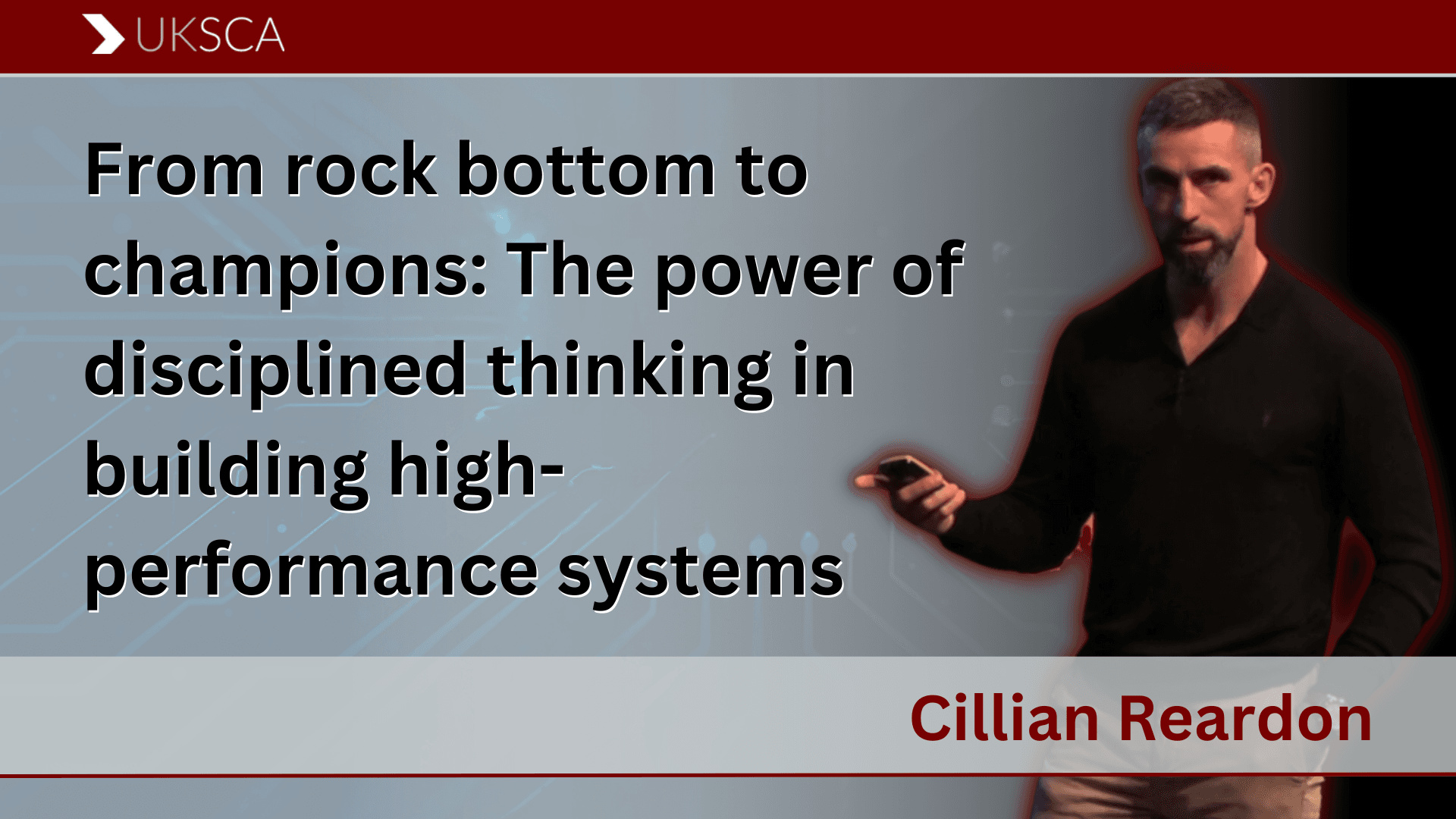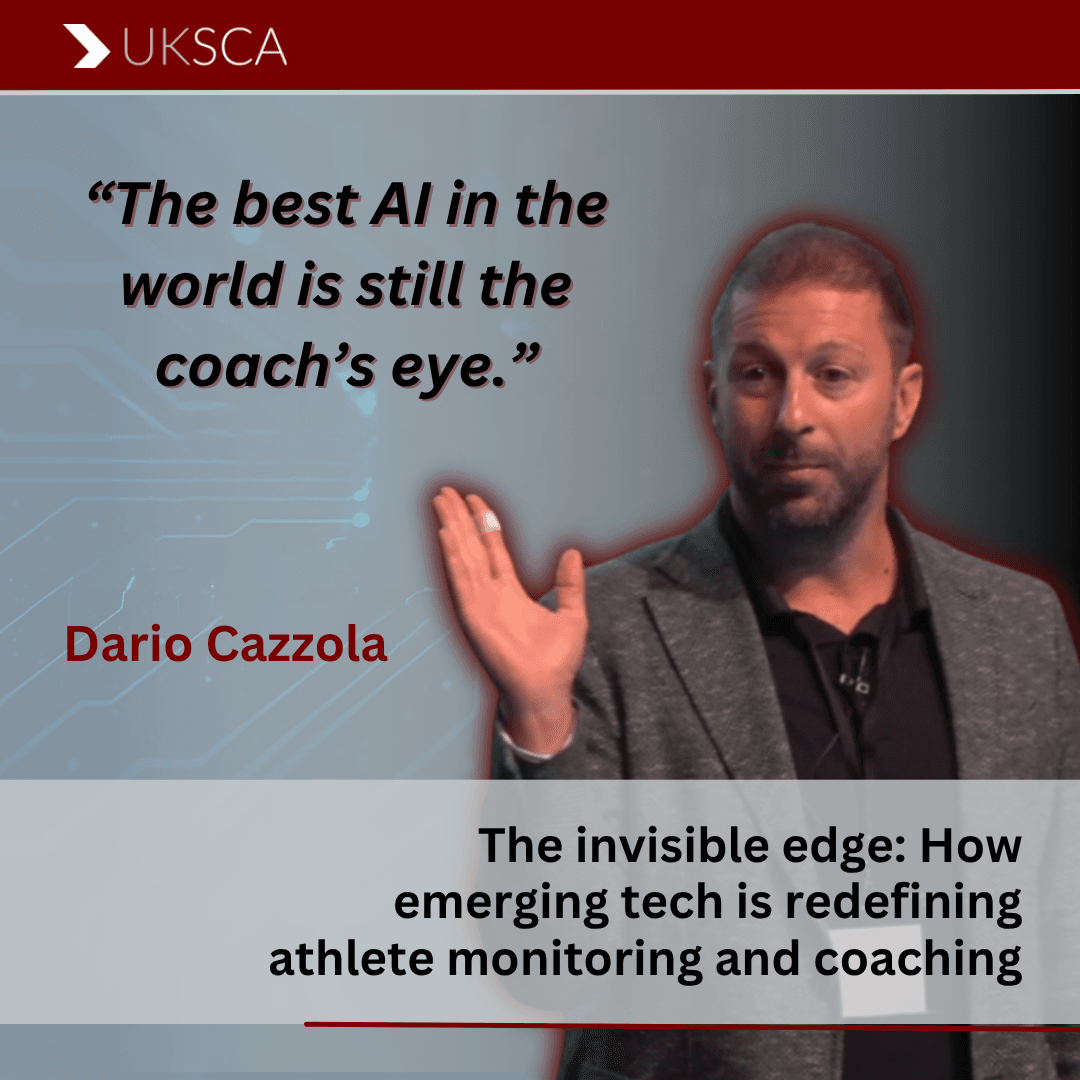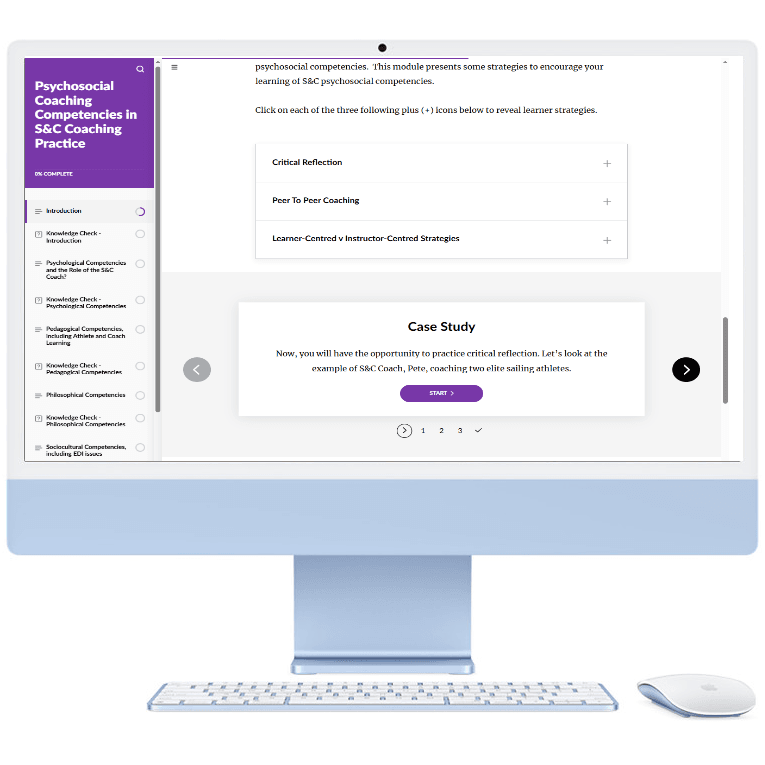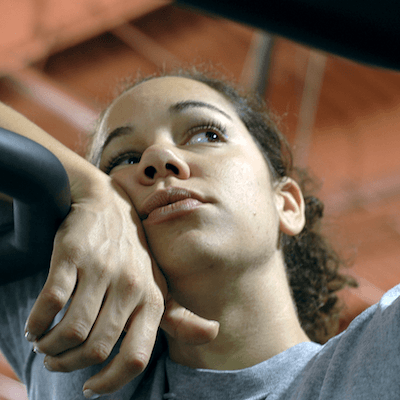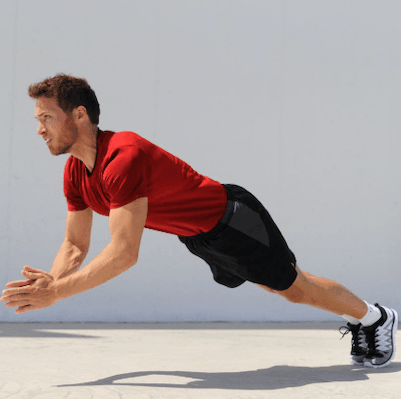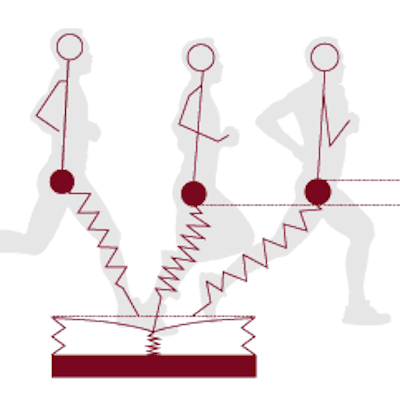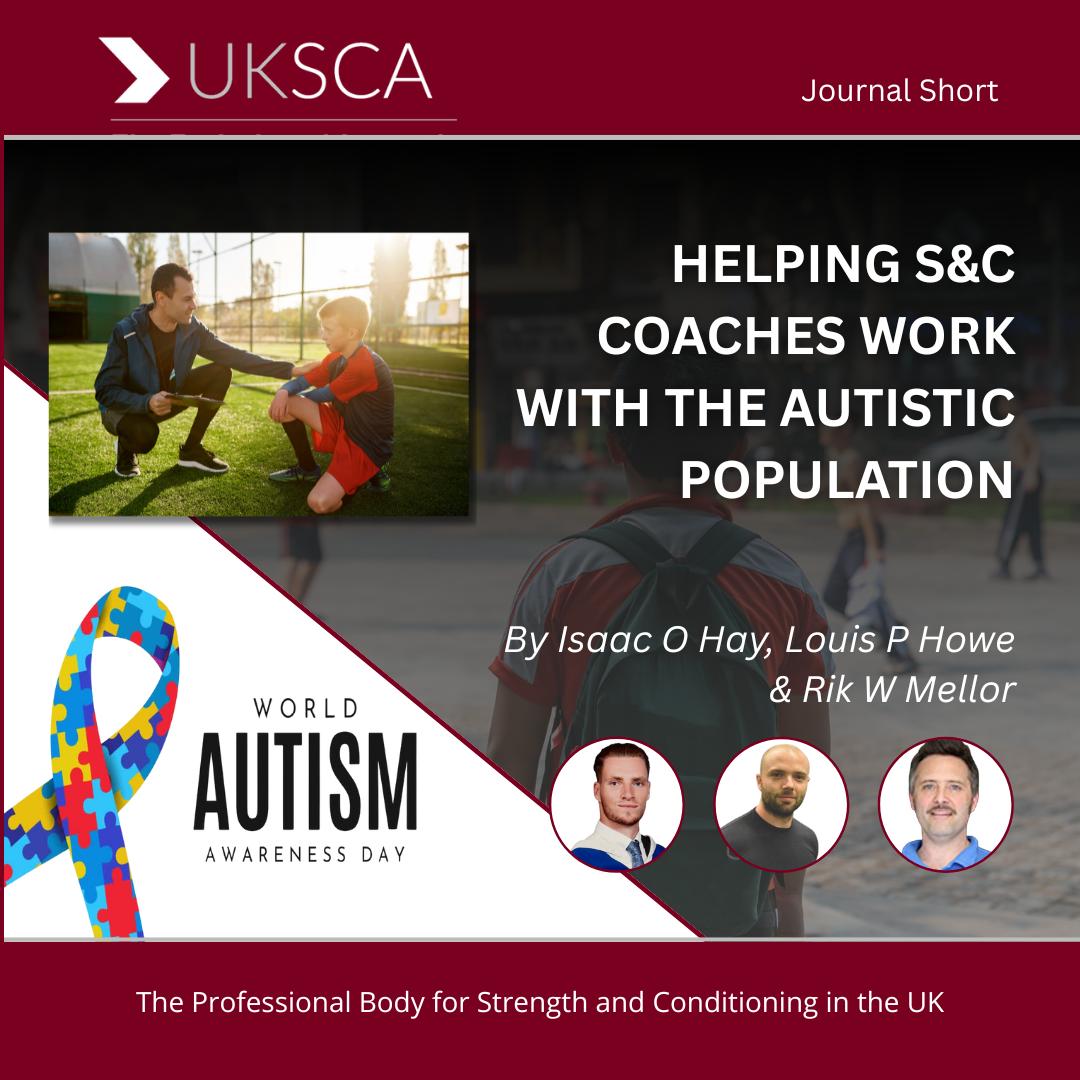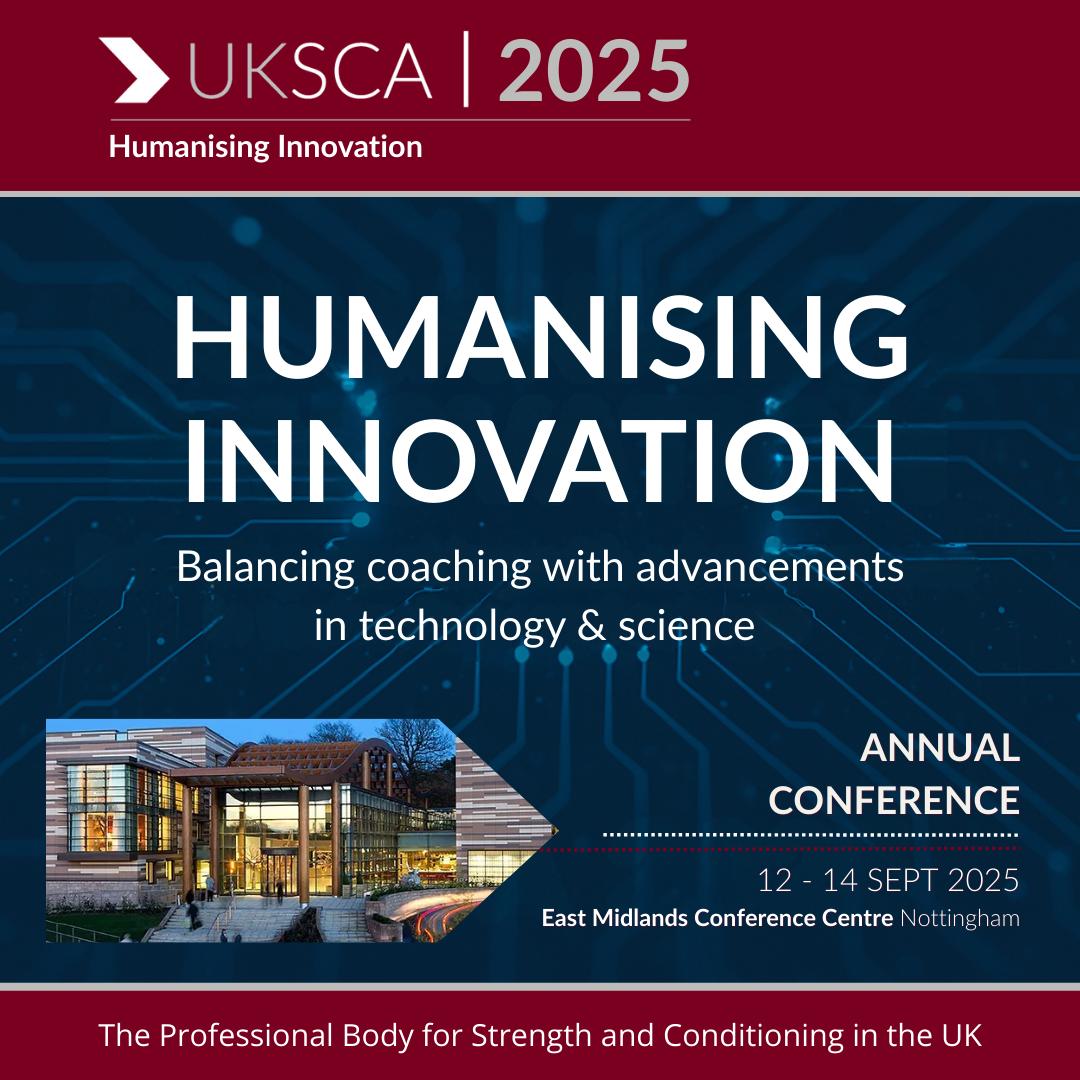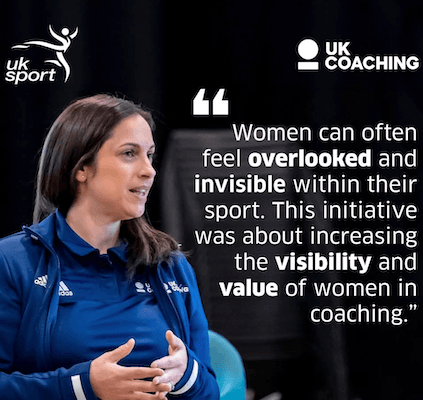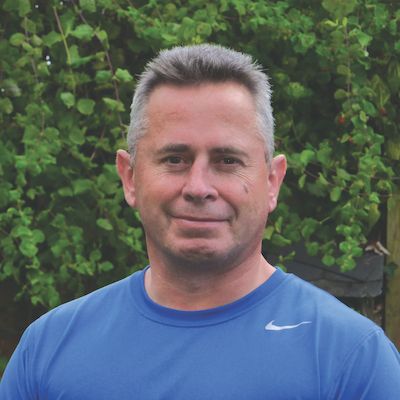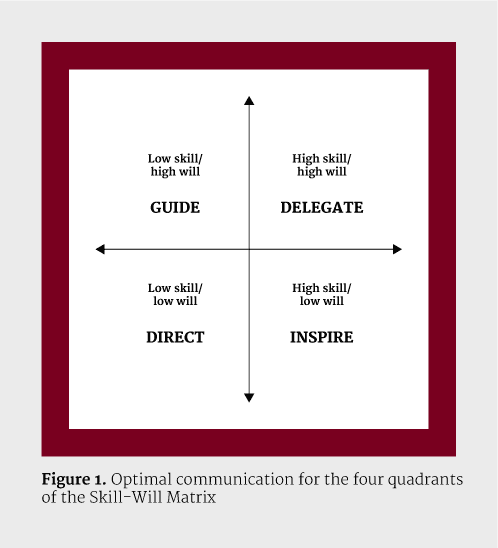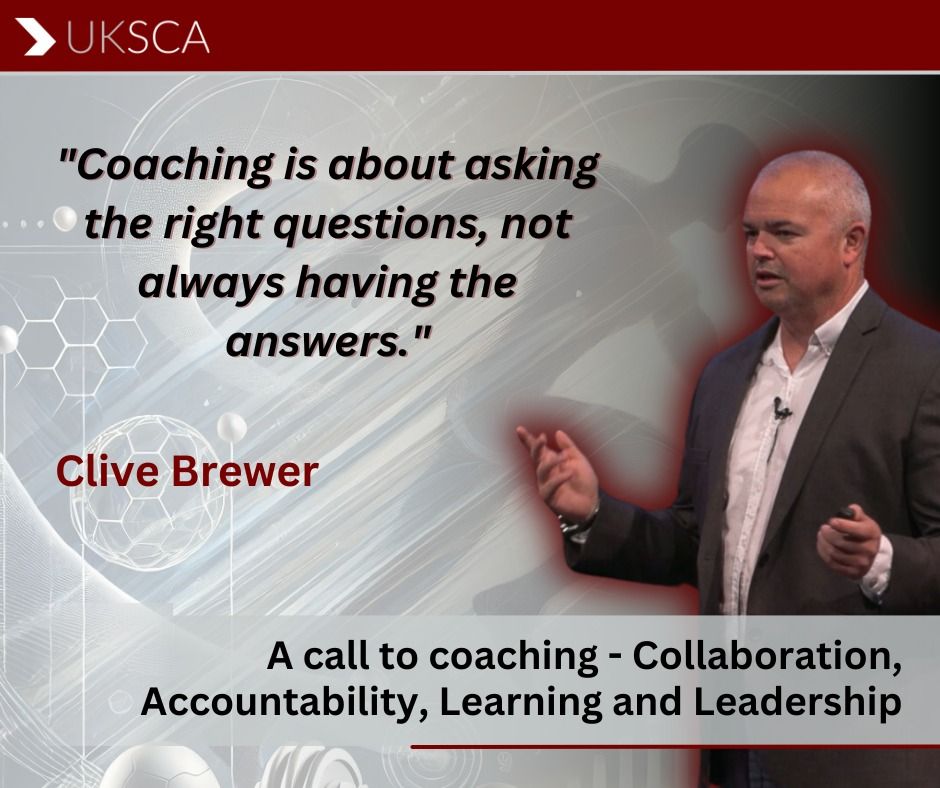


INTRODUCTION
One aim of this column is to bring voices from the discipline to the wider audience and to help inspire upcoming female coaches. Hopefully, by learning from each other, we can find new ways of working to help benefit the discipline and the sports within which we work.
I visited Warwickshire County Cricket Club in Edgbaston, where I interviewed Rebecca MacLaren and Paul Greetham. Rebecca, assistant S&C coach, let me observe and get involved with her coaching sessions and introduced me to some of the wider sports science/performance team. I have never personally had much to do with cricket (which would disappoint my grandfather, a keen cricketer), so for me this was a great introduction to the sports science behind cricket.
I very much enjoyed the interviews with both Rebecca and Paul and only wish I could have made them a podcast episode! They were both very expressive and had some great points to share. I hope you enjoy reading these interviews as much as I enjoyed interviewing and writing them.
INTERVIEW WITH REBECCA MACLAREN
What is your job title and job role?
'My job title is assistant strength and conditioning coach at Warwickshire County Cricket Club. My job mainly consists of leading the pathway, which is our academy and emerging player programme (EPP), so my main delivery time is with those guys. I also oversee our county age-group pathway and I support the professional squad. In the summer I mainly work with the 2nd XI, which is made up of both professional and academy players. I still oversee the pathway during the summer, but I have more contact time with the professional squad.
What made you pursue strength and conditioning as a career?
‘I’ve always been involved in sport from a young age: sport was a massive thing in my family, so it was a really big passion always. I played lots of different sports at school and golf was really big in our family, so I took that up at around age 10 or 11. Football is also a big passion: I’ve been going to watch Newcastle United for as long as I can remember and it’s how I spend most of my spare time at the moment.
‘So, I always knew I wanted to be involved in sport. But as I got older, I wasn’t really sure how or in what capacity. I went down a traditional route and took PE at A Level and looked at different sport courses at universities, finally settling on sports science as the broadest course, at Nottingham University. Then, at the start of my second year, there was an opportunity at Northampton Town Football Club to just go and help with some fitness testing and things just went from there really. I gradually became more involved with the football club, doing typical sports science/ S&C roles like leading on warm-ups, taking some gym sessions – which were basically in a classroom with some med-balls and cones and things – and then it all just followed from there and I haven’t looked back since.
Who inspired you?
‘I would probably choose two areas for inspiration, the first being a more personal one and that would be my sister. She’s a professional golfer and has played at quite a high level since she was young. So, I’ve always seen close up the sacrifices that it takes to get to the top and the work you have to put in. I have always been fascinated with how you could look at so many different facets of support and how it can have such a massive impact, whether it’s S&C, psychology, nutrition – and everything that you wouldn’t necessarily think of as connected to the sport, but how much it can actually help. Just seeing that up close with my sister, and watching her dedication to getting better every single day, meant she was a huge inspiration for me. I wanted to use that to help me get to a point where I could help and support people like her.
‘Professionally, and second, I would say when I first started out, there were two people whom I would always see on social media and read about and watch their stuff: Dawn Scott, who was at the FA and then Ivi Casagrande. Dawn was always someone who stood out as a female in S&C who was achieving so much and doing amazing things with different teams. With Ivi Casagrande, I’ve followed her stuff for a while, and similarly, she always came across as fearless, dreaming big and believing she could achieve it. I guess now with social media, people can put out so much content that it’s all there for you to consume, and I just found the stuff she put out there was really, really helpful for me.
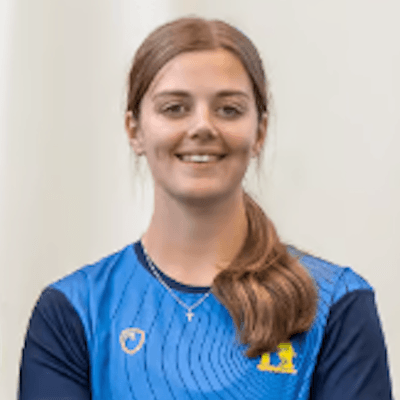
Have you encountered any challenges being a female coach?'
‘Yes, some of the challenges have come from within myself rather than external stuff that’s happened. In my first role I started out with the Northampton boys’ academy; we would go out on the training pitch and there were teams from the under 9s up to under 16s, all training at once on this huge astro. So, there were hundreds of kids running around and there were probably about 30- 40 coaches there, but I was the only female within a mile of the place! There wasn’t a single other female coach around.
‘I guess I knew that that was what I’d be going into or how it would be, but when you’re actually in it, it’s a real eye opener. Because I was just starting out, I had no confidence and was still just trying to learn everything; I almost felt like I didn’t belong. And that’s not from what anyone else said or did or how they acted towards me, it was totally from within me. But, as I got older and more confident in my coaching and what I was doing, I started to feel like I belonged and that I did have a place there. And that’s a theme from throughout my journey so far – just learning to believe that you do belong in those environments. Even now, although we have a couple of other female staff, they are part-time, so I am the only full-time female staff member with the pro-squad. We’ll have staff meetings and there’s 10 or 12 of us in the room and often I’ll be the only female. But now it just doesn’t feel wrong or different, it just feels totally normal. I’d like to think it feels like that for the other females on the team.
‘In terms of external challenges, people often think you’re a physio, not that you’re there as an S&C coach. I remember once when I first started at Warwickshire, myself and Jack (the lead S&C coach) had gone to a university to have a look at using some of their facilities: it was really funny because there was a female lab technician and she was directing all the conversation at Jack, when the two of us were stood there. She was just talking to him. Then they started talking about writing up some data and she points at me and says ‘oh maybe your intern can do it’! When I think of this story, I always think that it’s so much worse that it was a woman who said it. I guess that’s what people think when you’re a little bit younger and so you really have to assert yourself in a conversation or in an environment because it’s so easy to just get brushed under the carpet. So, you always have to make yourself known in a room. That’s what I’ve found, it’s just always having to let people know you are there.
‘Other challenges are more like logistical things. Like you almost feel like a bit of an inconvenience when you go to a new club – for example, you’re at an away club and you have to ask ‘can someone tell me where the female toilets are?’ or ‘where I can go to get changed?’ It’s little things like that which are a reminder of, I guess, feeling like an inconvenience. But things are getting much better, so I know it won’t be like that for the next generation.’
What do you think organisations and organisational staff can do to support femail coaches coming into these environments?
‘For me, I’ve always felt like the other staff are on my side. Like they now understand the inconvenience for me: before they hadn’t had a full-time female member of staff so no one had ever really thought about it. But now because I’m constantly asking the same question every week, they feel the difficulties for me I guess. It’ll be little things like I’ll knock before I go into the dressing room and it’s totally normal for the boys to be like “no, don’t come in” Or at the end of a game when I’m in the changing room, it’s no longer an issue for them to find somewhere to get changed because they know I’m there or they’ll say, “Becks, we’re just going to get changed now” and I’ll be like: “yeah ok I’ll leave”. They’re really respectful of my situation now rather than it being a problem that I’m there or like I’m inconveniencing them.
‘In terms of supporting more females to enter, we’ve got quite a few female placement students across physio and S&C this year and I think for them it’s so important to have a positive experience in that environment. It’s important that they look back on it in a positive way and think this is something they can go on and do, rather than thinking: ‘oh I had this one awful experience in a men’s environment and so now I don’t want to go back into that at all’. So we are getting to a point where the team and other staff understand and treat other female staff like I am now treated.’
What's your favourite thing to do outside of work?
‘Football! Everyone who knows me knows that’s what I would say. But I would also say spending time with my sister as well – although that could be going to watch Newcastle! But it could just be the two of us. Our favourite thing is going for brunch together. As we don’t get to see each other much with our schedules, the time we have is really precious time to spend together. I’ve definitely noticed as we’ve got older that when you don’t live with someone or live near each other, you have to make such an effort to put the time in – but that does make it much more quality time as well. So, the perfect combination for me would be travelling with her to go and watch Newcastle! Those are the two things I base most of my free time around.’
Whoe is your current favourite Newcastle player?
‘Bruno Guimarães.’
What's your favourite things about your job?
‘The people that I work with and getting to spend every day with them. Whether it’s staff or players, they’re just a great group of people that I get on with. As we’re all driven by the same goal of trying to help the players and help each other, it just makes coming into work every day enjoyable when you know you’re all there for one common reason. And when you’ve got a group of players that you get on with, but also they’re there wanting to be the best versions of themselves, and you’re helping them to get to that point, it makes it so rewarding as well. I would definitely say the people are the best thing.’
What's been the best piece of career advice you've been given?
‘Ummm, I’ve had so many good pieces of advice. I’d say don’t be afraid to dream big. Don’t feel like you have to be pigeonholed or cornered into one aspect and think that you’re not good enough to go further or onto bigger things. If you don’t believe in yourself then no one else will. So, believe you can do it and don’t stop until you’ve achieved what you want to.’
What piece of advice would you pass on to other female coaches?
‘Don’t be afraid to be yourself. In a couple of my roles I thought that – to be accepted or not stand out too much as the only female – I had to conform to some kind of identity or be this different version of myself. Because you might stand out as being the only female anyway, you almost don’t want to stand out for the wrong reasons. You want to be noticed, but also not bring too much attention to yourself. So, it can be easy to try and change yourself to fit that mould but really, if you’re in the right place with the right people, you’ll be accepted for who you are. You should never have to change who you are or what you believe or how you act or anything to fit a certain job or a certain mould. So, I would say, don’t be afraid to be yourself.’
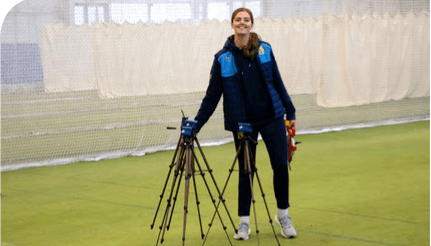
INTERVIEW WITH PAUL GREETHAM
What's your job title and responsibilities?
‘My job title is high performance manager and this has evolved over the years to overseeing and line managing all of the girls’ and boys’ pathways up to the age of 18. On the men’s side, I work to develop cricketers who may enter the professional game and we oversee the transition into the professional men’s team. From a girl’s pathway perspective, we feed the Central Sparks who are the professional women’s team in the West Midlands. Ultimately, our girls’ aspiration is to play for Central Sparks as a professional cricketer. The women’s structure is about to change though, with the advent of a new domestic programme with eight professional clubs running the eight domestic teams professionally from their own venues. I oversee and staff the pathway programmes to ensure that the performance programme is in place and resources are allocated to it. And, I also do a bit of coaching!'
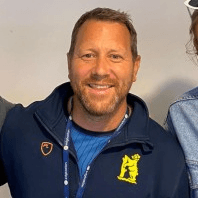
What do you see as the benefits of having female staff in the men's team set up?
‘It’s real life! What I’ve found working in cricket for 10 years is that if you just put all the same personalities and backgrounds and experiences in the same room, you’re just going to get the same outcomes: it’s counterproductive. My feeling is that the more experiences and different gendered experiences you can bring together, the more you ground the environment and keep people more present. The atmosphere is just far more understanding as opposed to that sort of stereotypical male chauvinistic, somewhat aggressive, team culture that can or has existed over the years. As a gay man in sport, I feel that the more diversity that exists in men’s professional sport, the greater the potential for understanding, collaboration and team-ship that could exist within a group or within a culture or a club. Having a woman in a men’s professional environment modifies behaviour; I think it gives a different blend to the environment. We need diversity of thinking and that’s something women can bring to the men’s game.'
Aa an organisation do you think your policies support this kind of diversity in the workplace?
'Yeah, 100%! I’m really proud of working at Edgbaston because for a long time now we’ve been big promoters of EDI in recruitment and our policies have supported that. I think we’ve been really positive in making sure that those we interview are from varied backgrounds. I’m proud to say that over the last few years Edgbaston has won awards and been recognised not just in recruitment, but also in engaging with diverse communities. The diversity programmes we have in place are second to none. As a workforce and as a club we’ve still got work to do, like everybody has. But within 5-10 years I think Edgbaston’s workforce will be reflective of society and if we hold a mirror up, it will reflect well on the community that we serve. We hope we are successful in getting the new women’s cricket entity moving forward because I think we are the only club in the area that are applying for Tier 1 status for the women’s game. I think this will give us an opportunity to bring more women and girls into the game and also into the workforce. In the future, if we are appointing a skills coach predominantly in the boys’ pathway, I would love to see applications from more talented female coaches.'
What has your experience been of being an openly gay man in this environment?
'It’s been a long and sometimes challenging road – in my head mostly. I was a teacher prior to this role. This is my eleventh year here, and during all this time at Edgbaston I’ve felt nothing but support: I would even say it’s a ‘non-subject’ to a degree, which is great. I’ve spoken about it when asked to speak about it; I’ve sat on panels when we’ve done Pride events at the Club; and I spoke to the professional men’s players prior to the Rainbow Lace game last year. I’m really happy to do those kind of things, but it doesn’t define me and my job. It’s just who I am and life goes on and I think that’s how it should be. I don’t think people should treat me any differently or tiptoe around me.
'My partner has been visible around work and around players and staff. I see it as an opportunity to be a role model and say “yes you can be a gay man in sport and be happy and healthy” and that no one really gives a $%@&!
‘The other dynamic is how people from different backgrounds and faiths might respond but it’s no secret. The club has written articles published on social media and people read stuff, so it’s out there, and I don’t feel I get treated any differently by any parents or players. Ultimately “you can’t be what you can’t see” so I’m proud to be who I am in our environment. It’s the same as I think Rebecca does a fantastic job in her role to show how you can be a successful female coach in the men’s environment.
'Credit to the players, I’ve never seen anyone treat her differently and as I said, she brings a different energy and vibe. Same for me really, I think I probably bring a different energy and vibe with my background than the next person. I didn’t come out until I was 25 because of the struggles I faced mentally as a young talented sportsperson. I think this has made me more empathic to the kids in our pathway. I’ve had young girls come out in our environment at 17/18 years of age. I’ve yet to see or hear of that in terms of the boys, but I’d like to think that I could help ease their path if someone did speak to me as I hope they would feel they have an ally. And maybe there is and they’re happy and healthier because of who I am in this environment, but I just don’t know. It’s great to know that in our workforce our young players have really positive role models, whether down to sexuality, gender or ethnicity.'
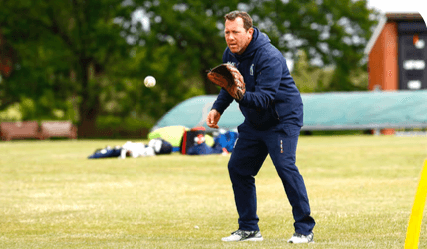
What advice would you give another sporting organisation that the moment isn't as far along with EDI as you are here?
‘One complexity about the word inclusion in EDI is that we are about performance. Ultimately a performance or elite professional programme is not inclusive. It’s inclusive of talent. It’s about identifying the best and getting the best out of people. But the thing I am really passionate about is that if I lead an MDT meeting or a staff meeting and you look around the room, we have diversity. If you don’t have diversity of thought and backgrounds when problem solving then you’re just going to discover the same answers as always. Historically, our game has been dominated by the thoughts and experiences of white, privileged, middle-class men. I think a healthy environment gives you a perspective from different backgrounds and gives you a 360-degree view on problem-solving that you’d never get otherwise. Rebecca sheds light on problems in a way that probably a 20-30 year old white man wouldn’t and that can only be a good thing. What I’ve learnt, certainly in performance sport, is that the wrong approach is to have lots of people in the room who agree with you or just say yes. That is not professional sport. Professional and performance sport is about complex problems and complex problems need diversity of thought to help solve them. So, my advice would be to make sure that there is diversity and different backgrounds across the workforce.'
What advice would you give to any young coach who come from a currently underrepresented group within sport and sports science?
'First of all, I don’t think there’s a better time in terms of opportunity because I think there are more recruiters now that think in the way I’ve tried to explain during this interview. I would say don’t take no for an answer and beat down as many doors as you can in terms of getting experiences.
'I don’t know many in our line of work who haven’t given up 12-18 months of their time regardless of pay to get some quality experiences and you’ve probably got to do a bit of that. I’ve been a coach all my life – even when I was a teacher – and in my early career years I hardly got paid anything but that experience for me was worth its weight in gold. I think it’s about beating down the door in the best possible way and asking: “can I come and observe or lend a hand and just learn from you?”
‘Every professional that I’ve ever looked up to or seen as a mentor or worked with – be it in teaching or coaching or sport – I have considered to be a vocational professional.
'They are not doing it for the money. They sacrifice hours and hours for the good of the game or the person that they’re working with and that’s why you respect them so much. They’re not watching the clock. You do it because you want to help develop people or you’ve got a competitive spirit that gives you that edge to work in professional sport. Sport is antisocial but that’s just how it is.
‘The people I aspire to be like are those who are there developing people and creating relationships to help other people develop. So, my advice harks to that really: you’ve got to do what you’ve got to do to get the experience and develop yourself so that you can succeed and therefore love all of what you put in to get there. It’s that sense of vocation that will give you a long career.’
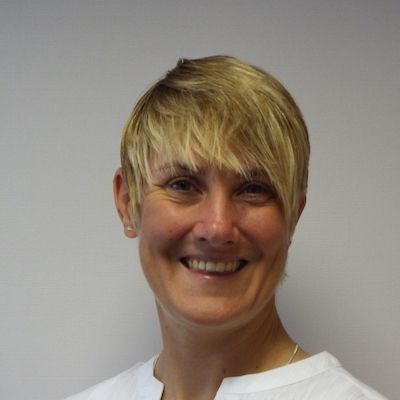
Val’s work predominantly supports teaching on the MSc in S&C at Loughborough University, while studying for a PhD on the under-representation of Women in S&C Coaching. She has a wealth of diverse experience with over 20 years of experience in fitness and sports coaching, experience in elite sport as an exercise physiologist, and experience within the social sciences. Her private coaching focuses on athletes, putting their health at the core. Youth and community work, as well as life coaching, combine her interests in the body and the mind for improving health and performance for everybody.
